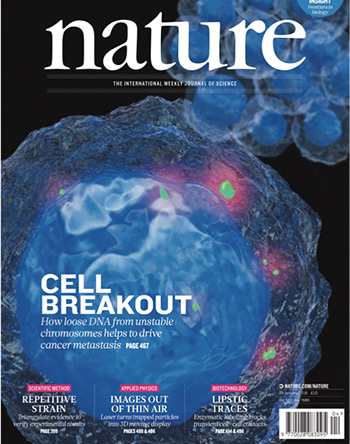NATURE – Chromosomal instability is a hallmark of cancer that results from ongoing errors in chromosome segregation during mitosis. Although chromosomal instability is a major driver of tumor evolution, its role in metastasis has not been established. Here we show that chromosomal instability promotes metastasis by sustaining a tumor cell-autonomous response to cytosolic DNA. Errors in chromosome segregation create a preponderance of micronuclei whose rupture spills genomic DNA into the cytosol.
This leads to the activation of the cGAS–STING (cyclic GMP-AMP synthase–stimulator of interferon genes) cytosolic DNA-sensing pathway and downstream noncanonical NF-κB signalling. Genetic suppression of chromosomal instability markedly delays metastasis even in highly aneuploid tumor models, whereas continuous chromosome segregation errors promote cellular invasion and metastasis in a STING-dependent manner. By subverting lethal epithelial responses to cytosolic DNA, chromosomally unstable tumor cells co-opt chronic activation of innate immune pathways to spread to distant organs.

